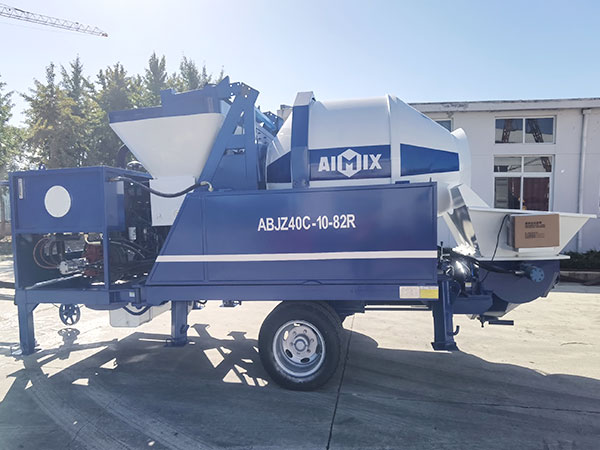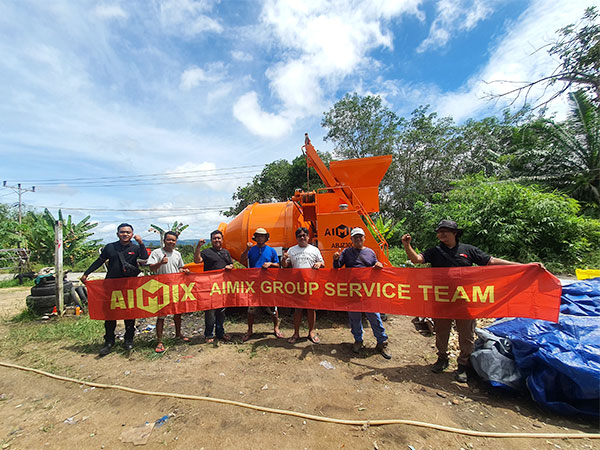Concrete pumps are essential tools in the construction industry, facilitating the efficient and precise placement of concrete. To ensure these machines continue to perform at their best, proper maintenance is crucial. By implementing best practices for concrete pump maintenance, operators can extend the lifespan of their equipment, minimize downtime, and maximize productivity on the job site.
Regular Inspection and Cleaning
Regular inspection and cleaning are fundamental to the maintenance of portable concrete pumps. Before and after each use, operators should inspect the pump for any signs of wear, damage, or leakage. Pay close attention to components such as hoses, seals, valves, and the pump’s housing. Any abnormalities should be addressed promptly to prevent further damage.

Cleaning is equally important to prevent the buildup of hardened concrete or debris within the pump system. After each use, thoroughly flush the pump with water to remove any residual material. Failure to clean the pump properly can lead to blockages, reduced flow rates, and potential damage to internal components.
Lubrication of Moving Parts
Proper lubrication is essential for maintaining the smooth operation of a mini concrete pump for sale. Moving parts such as pistons, seals, bearings, and hydraulic components require adequate lubrication to minimize friction and wear. Follow the manufacturer’s recommendations for the type and frequency of lubrication required for each component.
Regularly check lubrication levels and top up as necessary to ensure optimal performance. Over time, lubricants may degrade or become contaminated, so it’s essential to replace them at recommended intervals. Proper lubrication not only prolongs the lifespan of the pump but also ensures smooth and efficient operation during concrete placement.

Monitoring Hydraulic Systems
Hydraulic systems play a critical role in the operation of concrete pump trailer for sale, powering the movement of pistons, booms, and other components. Regular monitoring of hydraulic fluid levels, pressure, and temperature is essential to detect any issues early on.
Inspect hydraulic hoses and fittings for signs of leaks, wear, or damage. Address any leaks promptly to prevent loss of hydraulic fluid and potential system failure. Additionally, keep hydraulic filters clean and replace them as recommended to maintain optimal filtration efficiency.
Maintaining Electrical Components
Modern concrete pumps are equipped with various electrical components, including motors, sensors, controllers, and wiring harnesses. Proper maintenance of these electrical systems is essential for ensuring reliable operation and safety on the job site.
Inspect electrical connections for signs of corrosion, loose connections, or damage. Ensure that wiring harnesses are securely fastened and protected from abrasion or exposure to moisture. Regularly test electrical components such as switches, relays, and sensors to ensure they are functioning correctly.
Professional Servicing and Repairs
While regular maintenance tasks can be performed by operators, certain servicing and repairs should be left to qualified professionals. Schedule periodic inspections and servicing by authorized technicians to identify any potential issues and perform preventive maintenance tasks.
In the event of equipment malfunction or damage, avoid attempting repairs without proper training and expertise. Contact the manufacturer or an authorized service provider for assistance and adhere to their recommendations for repairs and replacement of parts.
Conclusion
Preserving the performance of the aimix concrete pump requires a proactive approach to maintenance. By adhering to best practices such as regular inspection, cleaning, lubrication, monitoring of hydraulic and electrical systems, and professional servicing, operators can ensure that their equipment remains in optimal condition. Investing time and resources in concrete pump maintenance not only prolongs the lifespan of the equipment but also contributes to safer and more efficient construction operations.